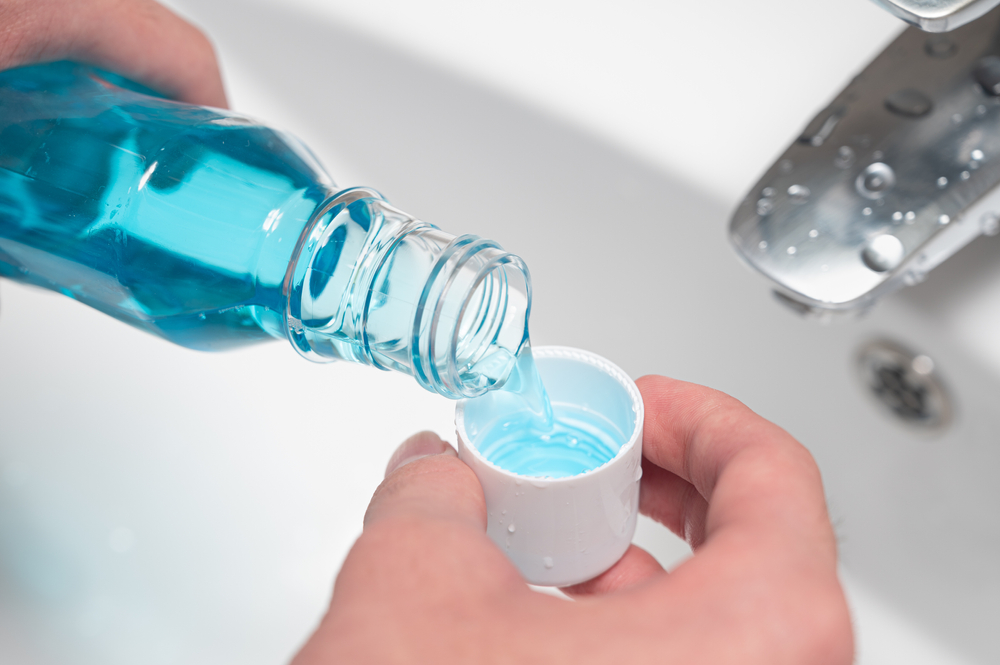In the dental chair, you have heard your dentist ask “how often do you floss” or “what is your brushing schedule looking like” but you have likely never heard a dentist ask you if you are remembering to use mouthwash every day. That said, mouthwash commercials and products in stores often treat mouthwash as the necessary third step in oral care. Brushing, flossing, and mouthwash is often marketed as a three-step process that ensures your health. But how important is mouthwash really?

Do I Need To Use Mouthwash?
The short answer is no. Brushing and flossing are adequate ways to take care of your teeth and gums. And mouthwash should never replace either one of them. There are often people who brush and use mouthwash instead of flossing. This is not recommended. That said, mouthwash can work really well as a final third step after brushing and flossing your teeth.
Does Mouthwash Fix Bad Breath?
Yes and no. Many mouthwash brands claim that they fix bad breath or help with halitosis, but it is mostly in a temporary fashion. If you brush your teeth, floss your teeth, and rinse with mouthwash before bed you will likely remove a decent amount of bacteria in your mouth. Your night routine for oral care is extremely important because the hours you are sleeping are often a time when bacteria can grow in your mouth and damage your teeth. When we eat food and sugars from our beverages can stick to teeth and give bacteria what it needs to grow. Bad breath is often caused by bacteria and mouthwash can treat it but not cure it. The bacteria can always come back, so mouthwash fixes bad breath insomuch as it deals with the bacteria today. But bad breath often has root causes that aren’t addressed by mouthwash.
Can Mouthwash Replace Brushing or Flossing?
You might see some ads that show interesting 3D graphics of mouthwash moving between the tiny gaps between your teeth and think that mouthwash can replace either brushing or flossing. It cannot. Brushing and flossing is the best way to remove food, sugars, and bacteria from the surfaces of your teeth and the gaps between them. Brushing, flossing, and then using mouthwash is a great choice though. If you brush and floss first you will actually create gaps in your teeth by removing plaque or food that has filled those gaps. Mouthwash can move through those gaps and kill some of the bacteria that might still be in your mouth.
Do All Mouthwashes Work The Same?
No. There are different types of mouthwash that perform different functions. For example, a dentist might recommend or even prescribe a mouthwash for gum disease or recommend a fluoride rinse on top of a specialized fluoride toothpaste to help strengthen teeth.
Schedule A Dental Cleaning in Maine
Above all, it is important to see a dentist. If you have questions about oral care, what works and what doesn’t, or how to improve your oral health, nothing beats asking a dentist in person at the end of a cleaning and exam. If you live in Southern Maine and need an appointment, give us a call.
